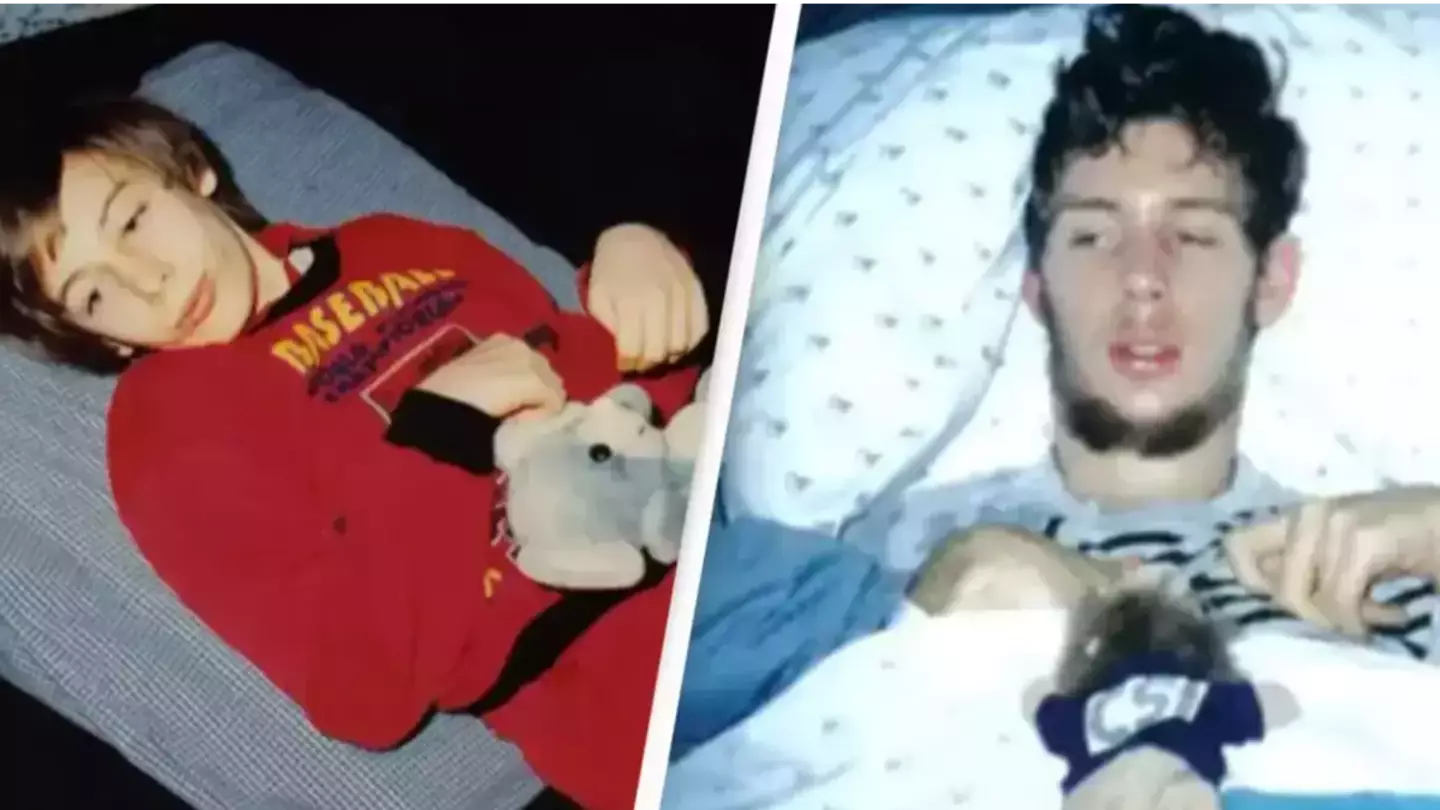
A man has shared the remarkable story of how he became 'locked' inside his body.
Martin Pistorius, now 48, told he could still see, hear and comprehend everything around him for the whole time that he was in a coma.
It started when he came home from school one day complaining of a sore throat.
Advert
Initially doctors thought that he had a case of the flu, but his condition continued to worsen until he had to be hospitalised aged just 12.
"I tested positive for cryptococcal meningitis and tuberculosis of the brain and was treated for both," he told LADbible. "My body weakened and I lost the ability to speak and control my movements."
Pistorius was in a vegetative state, which he discusses in his 2012 book Ghost Boy.
Pistorius’ parents, Joan and Rodney, were not given a conclusive reason why his body shut down. They weren’t ready to give up on him and kept him alive in a care centre.
Pistorius describes this period of his life as being like ‘an empty shell, unaware of anything around me’.
Around four years later was when he started to ‘wake up’, as he described: "I remember around by 16th birthday people talking about the stubble on my chin and wondering whether to shave me."

He continues: "I was able to hear, see and understand everything around me but I had absolutely no power or control over anything.
"For me, that feeling of complete and utter powerlessness is probably the worst feeling I have ever experienced, and I hope I never have to experience again. It is like you don't exist, every single thing in your life is decided by someone else.
Nobody realised Pistorius had regained consciousness and was taking in everything around him. He even remembers having no choice but to watch reruns of Barney in the special care centre.
“I cannot even express to you how much I hated Barney,” he declared in an interview with NPR.
Pistorius’ mum Joan says she struggled to come to terms with her son’s condition.
In his memoir, he recalls sitting in his wheelchair one day when his mum said to him: "I hope you die."
The comment affected him and made him feel ‘very sad and upset’, he ‘understood where that was coming from’.
.webp)
In order to keep his sanity, he’d use his imagination: "I'd imagine all sorts of things, like being very small and climbing into a spaceship and flying away. Or that my wheelchair would magically transform into a flying vehicle.
"I would sometimes watch things move, whether it be how sunlight moved throughout the day. Or watching insects of some sort scurry about, but, really, I lived in my mind to the point where at times I was oblivious to the world around me."
In 2001, when Pistorius was 25, a relief carer at the day centre, Virna van der Walt, encouraged his parents to take him to the Centre For Augmentative And Alternative Communication at the University Of Pretoria.
It was there that a researcher held up a sheet of paper with symbols on it, and he was asked to locate a ball with his eyes. After finding the shape, he was asked to find the dog.
.webp)
Nearly 13 years after he became ill, he was able to reveal that he was conscious and able to communicate.
His parents invested in a computer which was preloaded with communication software, similar to the technology used by the late theoretical physicist, Stephen Hawking.
Pistorius would select letters, words or symbols on the device using a band attached to his head, which would act like a mouse.
He started working with van der Walt in 2003 at the care centre, and then then met the love of his life, Joanna, who worked as a social worker. They got married in 2009 in Essex.
They welcomed a son, Sebastian Albert Pistorius, in 2018 and Pistorius often shares pictures of his family on Instagram.
Pistorius now works as a computer scientist and web developer.
If you or someone you know is struggling or in crisis, help is available through Mental Health America. Call or text 988 or chat 988lifeline.org. You can also reach Crisis Text Line by texting MHA to 741741.
You can also call 1-800-985-5990 or text “TalkWithUs” to 66746 at the SAMHSA Disaster Distress Helpline.
If you're experiencing distressing thoughts and feelings, the Campaign Against Living Miserably (CALM) is there to support you. They're open from 5pm–midnight, 365 days a year. Their national number is 0800 58 58 58 and they also have a webchat service if you're not comfortable talking on the phone
